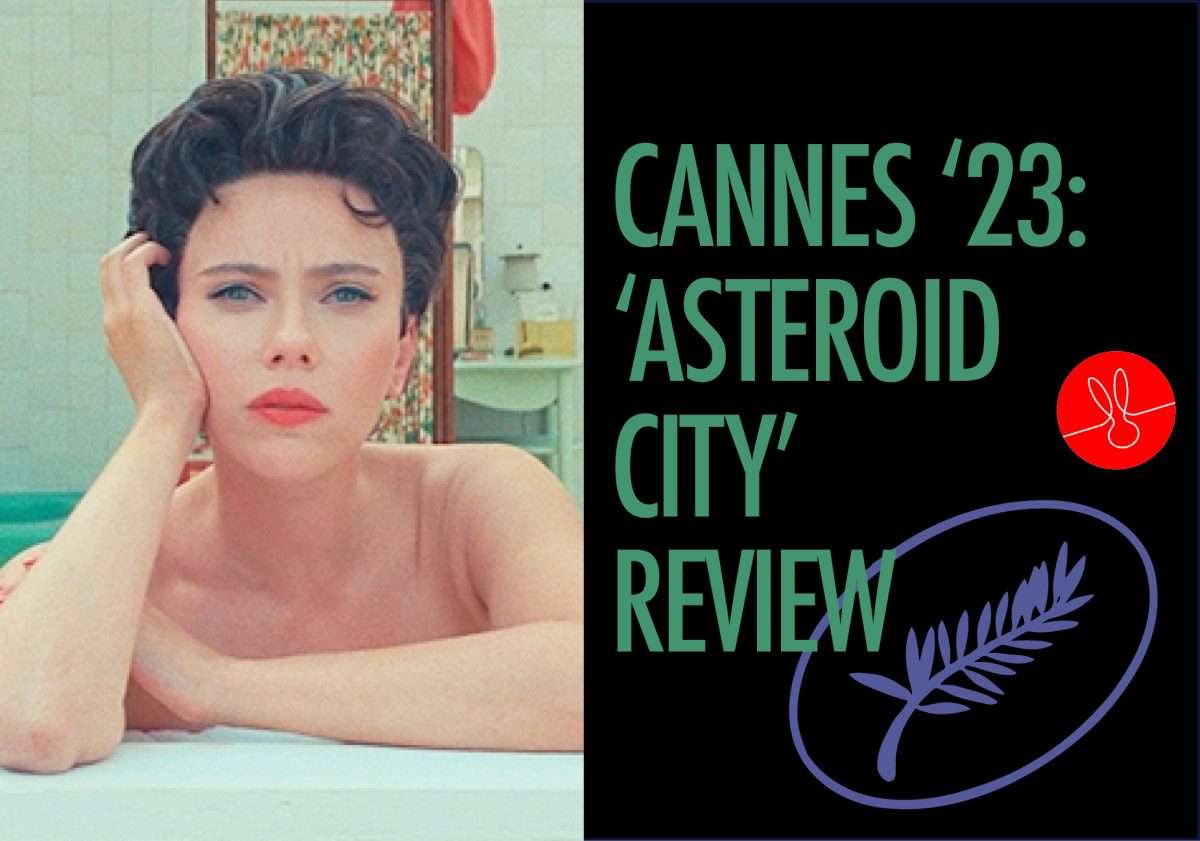
From the outset, Asteroid City promises to be much like the rest of Wes Anderson’s body of work. There’s an elegance in its eccentricity, slapstick humour, bold pastel tones, and a sense of the otherworldly; a pastiche of a place and a time that exists in our collective memory…but more than likely never really happened at all. Before, it was a romantic version of Paris (with The French Dispatch). This time, it’s 1950s America: a spontaneous gathering of parents, military officers, and scientists who find themselves caught up in an extraterrestrial encounter they’re unable to leave behind.
Whether you like the film or not will depend on if Asteroid City works for you. Anderson’s hallmarks are strong, but his intentions here are smarter, more emotional, and actually rather existential. Like a wide crater, the question of life engulfs the centre of each person’s motivations; their fears (and there are a lot of dark, deeply scarred characters here) are dressed up in the brightness of the palette, and the zip-zap editing that errs on the side of a light comedy. Something troubling is under the surface, and this time Anderson engages these themes—to a surprisingly moving effect.
This is the most all-star cast he has assembled so far, but an Anderson script clearly isn’t for everyone. Matt Dillon’s slow, unfazed brogue seems distractingly out-of-step delivering the whimsical dialogue. Tom Hanks brings his A-list charisma, but he also lacks the spark of Anderson’s usual elder statesmen: Gene Hackman and Bill Murray (the latter would be perfect in Hanks’ role). Although he’s tried to fit in as many famous cameos as possible, his regular roster of actors remain the most natural. The right performers are intrinsic to Anderson’s universe, which requires a precise balance of fluid rhythm and choreographed movement to work. It just wouldn’t be the same without them.
Asteroid City is perhaps Anderson’s best recent film. Like the first time experiencing Carl Sagan’s Cosmos, he conjurs a sense of magic in the universe—and of our place in it. For all the sprightly Wes Anderson-isms, darkness is cast over all of his characters, and by the end, they are called to heal. Life moves on. The universe is unknowing. Trouble and misery don’t need to be depicted as honourable undertakings. The small, desert stop-gap town of Asteroid City is a plausible metaphor for limbo, where the characters are offered the chance to step forward with newfound strength and wonder. By the credits, it appears that everyone will be okay.
For a filmmaker who is by no means willing to part from his usual ways, Anderson’s latest feature has a new level of maturity, meeting his themes head on; with positivity and a lightness of touch.





